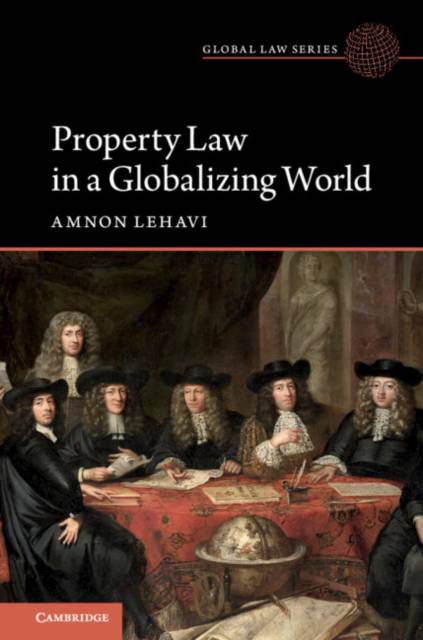
- Afhalen na 1 uur in een winkel met voorraad
- Gratis thuislevering in België vanaf € 30
- Ruim aanbod met 7 miljoen producten
- Afhalen na 1 uur in een winkel met voorraad
- Gratis thuislevering in België vanaf € 30
- Ruim aanbod met 7 miljoen producten
Zoeken
€ 139,95
+ 279 punten
Omschrijving
Property Law in a Globalizing World identifies the paramount challenges that contemporary processes of globalization pose for the study and practice of property law. It offers a straightforward analysis of legal scenarios implicating cross-border property rights, covering a broad range of resources, from land, goods, and intangible financial assets to intellectual property, data, and digital assets. This is the first scholarly book offering a detailed study of legal strategies that can decrease the gap between the domestic tenets of property law and the cross-border nature of markets, interpersonal networks, and technology. It shows how strategies of soft law, conflict of laws, approximation, and supranationalism rely to various degrees on cross-border property norms and institutions, and studies the proprietary features of security interests and priorities to assets in insolvency in a global setting. It also shows how digital technology such as blockchain can revolutionize the system of cross-border property rights.
Specificaties
Betrokkenen
- Auteur(s):
- Uitgeverij:
Inhoud
- Aantal bladzijden:
- 300
- Taal:
- Engels
- Reeks:
Eigenschappen
- Productcode (EAN):
- 9781108425124
- Verschijningsdatum:
- 28/02/2019
- Uitvoering:
- Hardcover
- Formaat:
- Genaaid
- Afmetingen:
- 161 mm x 234 mm
- Gewicht:
- 544 g

Alleen bij Standaard Boekhandel
+ 279 punten op je klantenkaart van Standaard Boekhandel
Beoordelingen
We publiceren alleen reviews die voldoen aan de voorwaarden voor reviews. Bekijk onze voorwaarden voor reviews.











